The world's first Charles Bonnet Syndrome Patient Day will be hosted on 16th November 2018 at Moorfields' Hospital. We've invited Judith Potts, the founder of Charles Bonnet Syndrome campaign Esme's Umbrella, to talk about what Charles Bonnet Syndrome is, as well as how it directly affected her life.
Black Friday sale 8% off
Charles Bonnet Syndrome: what is this mysteriously underreported condition?
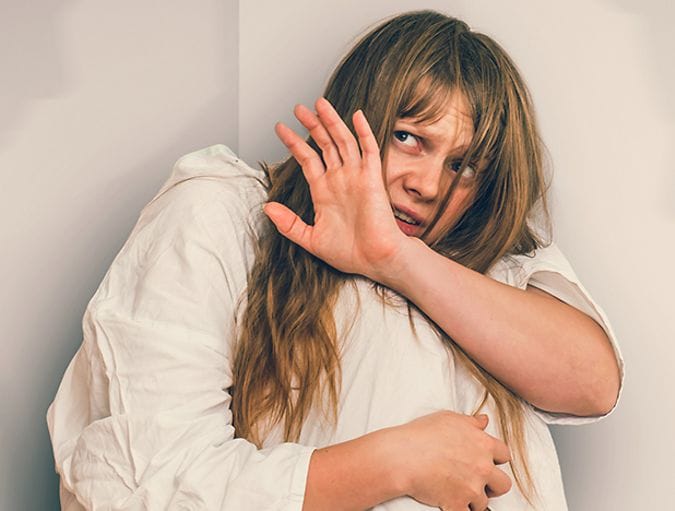
What is Charles Bonnet Syndrome?
Charles Bonnet Syndrome (CBS) is a condition which can develop in anyone of any age when over 60% of sight is lost from the myriad of eye diseases - stroke, cancer, diabetes - or even injury which can damage the optic pathway.
As sight diminishes, messages from the retina to the visual cortex, slow down or stop entirely. However, the brain does the opposite – it fires up and creates its own vivid, silent, visual hallucinations which can range from benign to terrifying.
CBS has been acknowledged by ophthalmologists and optometrists since 1760 when Charles Bonnet – a Genevan lawyer, philosopher and naturalist - first documented the experience of Charles Lullin, his 97-year old grandfather.
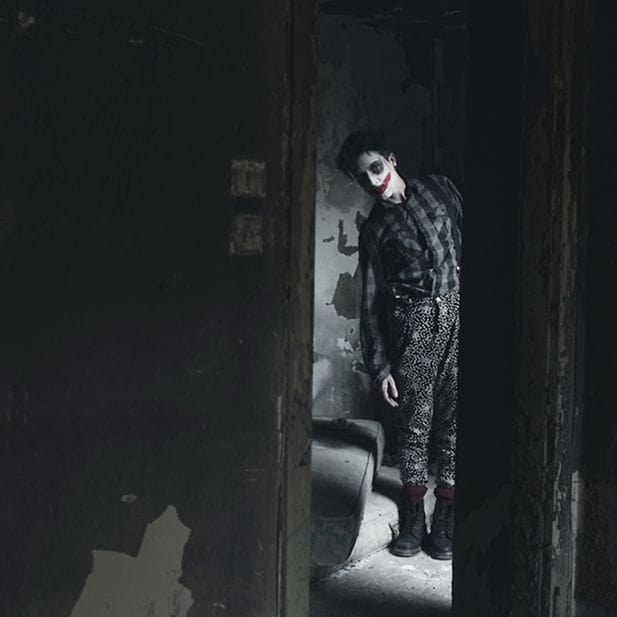
Lullin's sight was compromised by severe cataracts but otherwise, he was psychologically sound. He described how he saw people, birds, carriages, buildings, scaffolding patterns and the tapestries on the wall changing. Although noted by doctors over the centuries, no research on CBS was undertaken until 1998 and the condition has been too easily dismissed as 'just a side effect' of sight loss.
It is so very much more than that, as I discovered the day my 92-year-old mother, Esme, said "I do wish these people would get off my sofa".
She went on to describe her other 'visions', as she called them – a gargoyle-like creature which hopped from table to chair, a Victorian tear-stained street child who followed her everywhere and, sometimes, the whole room or garden morphed into somewhere else. One day, it was an Edwardian funeral procession, complete with plumed horses and the clergy in red cassocks.
It was not until I read a tiny paragraph in a newspaper, which could have been written by my mother, that the word 'dementia' stopped hanging in the air.
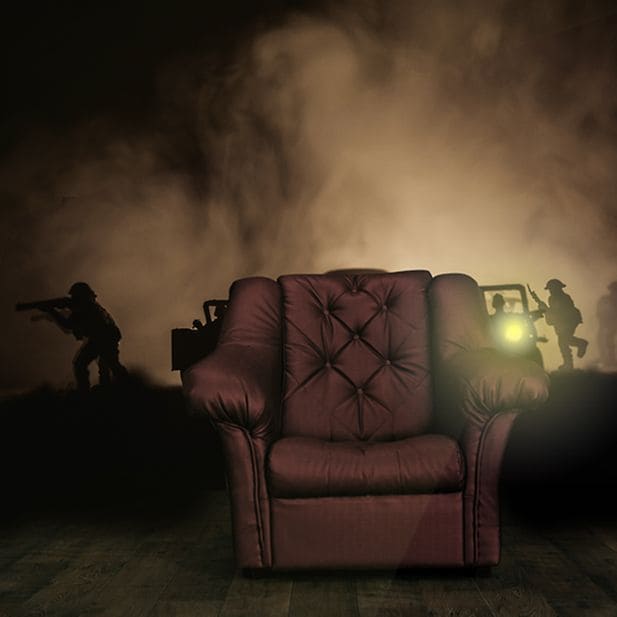
Unfortunately, her ophthalmologist declined to discuss CBS, her GP had never heard of it and neither had her optometrist. Consulting the internet, I found Dr Dominic ffytche of King's College London, who has done the only research on CBS and is the sole, globally-acknowledged expert on the condition. His research has debunked some of the myths surrounding CBS – that it disappears after 18 months and that the hallucinations are always benign.
Esme's Umbrella
After my mother died, I launched Esme's Umbrella to raise awareness of CBS – both within the medical profession and out into the community - and gather funds for research. Dr ffytche is my medical adviser.
Despite being aware of CBS, healthcare professionals in the sight loss sector have not entirely appreciated the exact nature of the condition and the negative impact it has on those who develop it.
Consequently, very few explain CBS or warn their patients that it might develop. It might not, but forewarned is forearmed.
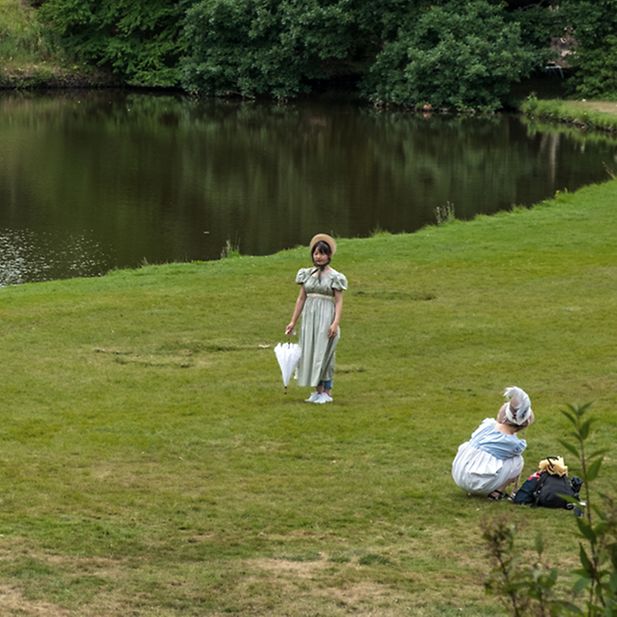
Charles Bonnet Syndrome hallucinations
There is no medication to alleviate the hallucinations nor any medical consultants in the condition. Too many GPs and hospital doctors are unaware of CBS and their first instinct on hearing a description of visual hallucinations is to send the person down the mental health pathway – sometimes on a one-way ticket.
Fearing that the hallucinations might be a mental health issue prevents people from confiding in anyone, whilst their quality of life – already diminished by sight loss - takes another downturn.
Some people who see benign images like flowers, cavorting kittens or beautiful landscapes, tolerate – and even enjoy – the hallucinations. However, for others, the hallucinations are frustrating and irritating in their constancy or disturbing and terrifying in their nature.
The list of what is seen is endless but ranges from the whole room being covered by words, maps, grids, trellis-work, musical notes or coloured shapes to sinister images of people (often in costume – Edwardian, Victorian, military, medieval, middle eastern, Tyrolean) and fire – both of which can result in calls to the emergency services. Other commonly experienced hallucinations involve children and babies, animals, snakes, rodents, insects, frogs, water, vehicles, buildings, plants, grass, trees, furniture or walls.
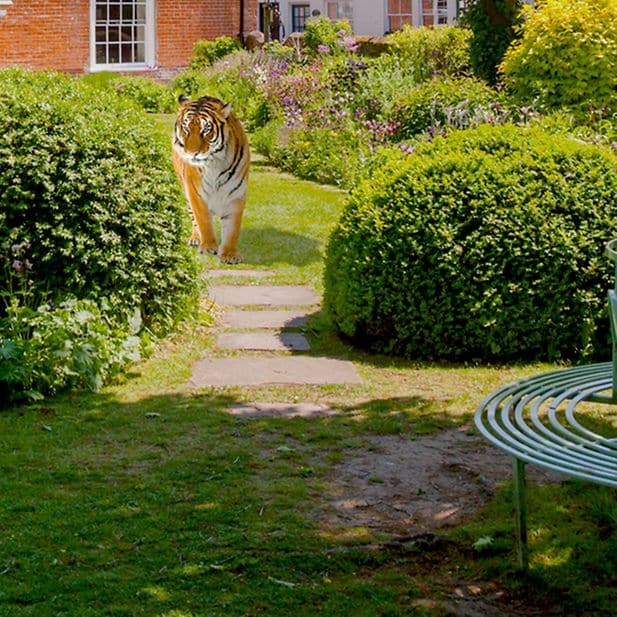
Sometimes, as Esme experienced, the whole room changes to an alien place - sitting on a pallet in the middle of a fast-flowing river, alone in a medieval candlelit cathedral or surrounded by doors of all sizes have been reported. Those who experience multiple hallucinations often become housebound, because they cannot distinguish between what is real and what is not. For a few people, the hallucinations are so distressing and horrific that suicide becomes an option.
Seeking help
To prevent possible misdiagnosis, it is essential to raise awareness of this distressing condition both within the medical profession and out into the community. To that end, I am hosting the world's first Charles Bonnet Syndrome Patient Day on 16th November at Moorfields' Hospital – to coincide with Charles Bonnet Syndrome Awareness Day.
This will be a very exciting and groundbreaking event, at which we will hear from two CBS researchers from Newcastle University – one working for Esme's Umbrella, who is funded by Fight for Sight/The Thomas Pocklington Trust/National Eye Research Centre and the other which is funded by the Macular Society. I hope that the Patient Day will inspire more researchers to move into this crucial area and additional funding will be offered.
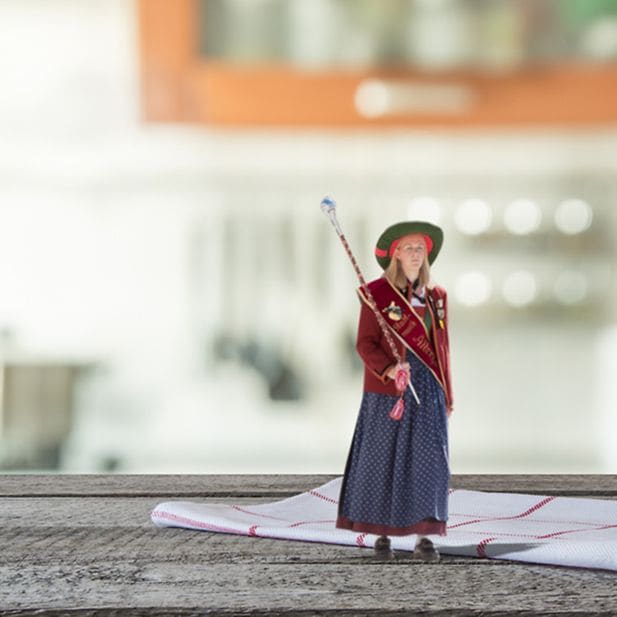
It is difficult enough to live with sight loss, but if CBS develops too, feelings of loneliness and isolation multiply. If you suspect you or someone you know is living with CBS, the best way to deal with it is to get help.
If you think yourself or someone you know might be suffering from CBS, make sure you try and get help. Esme's Umbrella carries all the CBS current information, Dr ffytche's research and coping strategies which, along with reassurance, is all the treatment that is available currently. Alternatively, you can ring the Esme's Umbrella helpline, currently staffed by the RNIB Health Team, on 020 7391 3299.
Related links:
- See the world through someone else's eyes
- A guide to astigmatism
- What is presbyopia?